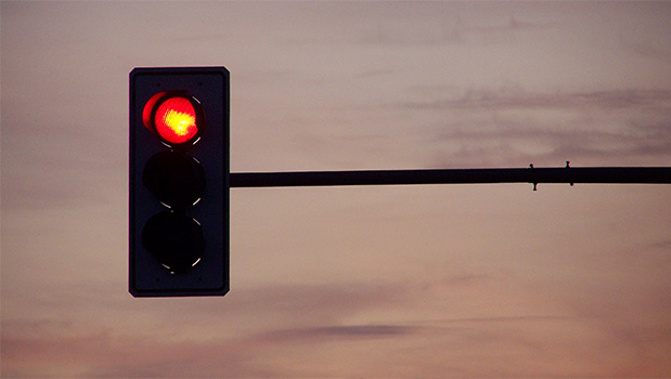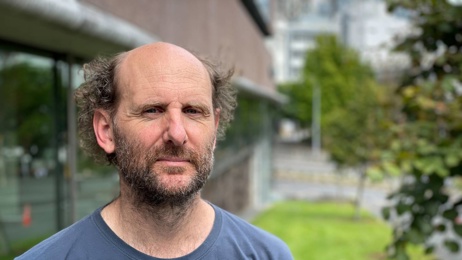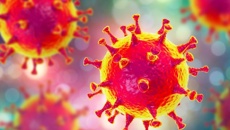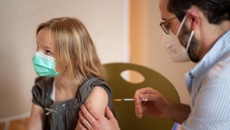
Most of the upper North Island will go straight into the highest level of restrictions once the new traffic light system comes into force on Friday.
Prime Minister Jacinda Ardern today confirmed the country would move to the new Covid-19 Protection Framework from 11.59pm Thursday, doing away with the alert level settings that have become part of daily life since March last year.
The new framework is based around high vaccination rates enabling living with Covid-19 in the community, with three levels of restrictions based on the risk posed - green, orange and red.
Moving straight to red will be Northland, Auckland, Taupō and Rotorua Lakes Districts, Kawerau, Whakatane, Ōpōtiki Districts, Gisborne District, Wairoa District, Rangitikei, Whanganui and Ruapehu Districts.
Auckland, as centre of the current outbreak, had been signalled as going to red.
The other areas all have active cases and/or still-low vaccination rates.
The rest of the North Island and whole of the South Island will go to orange.
As previously stated by Ardern, no regions will go straight to green.
"On Friday the traffic lights are turned on for all of New Zealand, as we move forward safely into the next phase of our world-leading Covid-19 response," Ardern said.
"We've prepared well for this moment by maintaining a cautious approach focused on protecting people and their jobs. Our next phase is focused on minimising the impact of Covid-19 and protecting people."
Just over 92 per cent of the eligible population - aged 12 and over - have had at least one dose, and 85 per cent are now fully vaccinated.
Of the total population, this equates to 78 and 72 per cent respectively.
There still exist vast inequities however, largely correlating with access issues and deprivation levels, but also due to the way the vaccine rollout was structured to prioritise older age groups.
Māori, which is a much younger population overall, are at 82 per cent first dose and 68 per cent two doses in the eligible populations.
At a total population level this drops to just 61 per cent first dose, and 50 per cent second dose (due to a known health data undercount this could be even lower).
Ardern said the certainty and stability of the traffic lights replaced the sudden lockdowns and restrictions of alert levels.
"The factors considered when setting the colours in each region include vaccination, the state of the health system, testing, contact tracing and case management capacity, as well as the rate and effect of Covid-19 transmission," Ardern said.
"Our schools will stay open at every colour and businesses will have protection through My Vaccine Passes to keep operating.
"Other than the existing Auckland boundary, which lifts on January 17, there will be no new restrictions on travel between regions."
Under all traffic light settings, events, restaurants, bars, gyms and hairdressers are expected to be able to remain open.
That is, provided they use a vaccine pass to ensure only vaccinated people are using their services.
Only under the red setting do events and gyms become limited as they have to restrict the number of people in attendance to 100 or fewer, while hairdressers also have to maintain stricter public health measures.
For those not using vaccine passes close-proximity businesses - such as hairdressers - are not able to operate. In gatherings allowed numbers are limited 25.
"Vaccinated New Zealanders using vaccine passes will be able to do many of the things that were previously treated as high risk like safely going to bars and restaurants, getting a haircut, and going to a concert or the gym," Ardern said.
"In Auckland, it means seeing friends and family indoors again.
"But there is more to do. There are 160,889 Kiwis due for a second dose – if everyone got it this week we would be at 89.3 per cent fully vaccinated.
"I encourage those people to get their second dose today to benefit from the full protection of the vaccine, and to be able to get their Vaccine Pass."
Red is the highest level in the new system, which is why Auckland has moved in at red as the epicentre of the current outbreak, Ardern said.
"We've taken strong account of vaccination rates and vulnerable populations in the other regions at Red.
"Red provides extra protections against Covid-19 such as requiring both Vaccine Passes and some capacity limits in the most-high risk settings – that's because if someone has Covid-19, the virus will find it harder to spread among fewer people who are at a distance.
"As we see what happens to cases and vaccination levels we can look to move regions down to orange over time, where there are no gathering limits for those who are using vaccine passes.
"We are not moving any regions to green immediately while we continue to get vaccination rates up and transition the country to the new framework. To achieve this, $120 million continues to be distributed to support Māori communities to fast-track vaccination efforts and prepare for the traffic light system.
"But Covid-19 is still with us, and the emergence of the Omicron variant overseas is a reminder of why we need to maintain a careful approach and keep public health measures in place to protect us.
Cabinet will review settings and provide an update on Monday, December 13.
The next update by ministers will be on January 17.
Support for business under the Traffic Lights system
Businesses will be able to get one-off payments of up to $24,000 in government support as they move into the new traffic light system.
Finance Minister Grant Robertson said the transition payments would be particularly for businesses in Auckland, Waikato and Northland to help them get up and running again after the lockdown restrictions that have applied since mid-August in some areas.
The one-off payments would be available on December 10, made through the Resurgence Support Payment system. The new support package is expected to cost $350 and $490 million all up.
It was a higher rate than the current resurgence support payments – and would be calculated at $4000 per business plus $400 for each full time employee, up to a cap of 50 FTEs – a maximum payment of $24,000.
It would be for businesses which could show their revenue was at least 30 per cent down between October 3 and November 9 compared with a typical week in the six weeks prior to August 17.
"This payment is a recognition of the long period of time businesses in Auckland, in particular, have spent with restrictions in place prior to shifting to the new framework."
He said at all levels of the new traffic light system, most businesses will be able to operate at almost full capacity.
He said the Government would monitor the impacts the traffic light system was having on businesses and expected to report to Cabinet in early 2022 with any further recommendations for support – however, he expected future government support would only be offered at the red level.
"To be clear about this, if it is deemed necessary targeted support would only be available under the Red setting of the new system as businesses that operate vaccine passes have no significant restrictions at Orange and Green."
The final round of wage subsidies and resurgence payments opened on Friday, and Robertson said those would still be paid out in addition to the transition payment.
Payments for staff to be on leave while isolating or waiting for test results would also continue to be provided under the traffic light system - but the leave support system would move to weekly rather than fortnightly because of shorter isolation periods.
Take your Radio, Podcasts and Music with you








